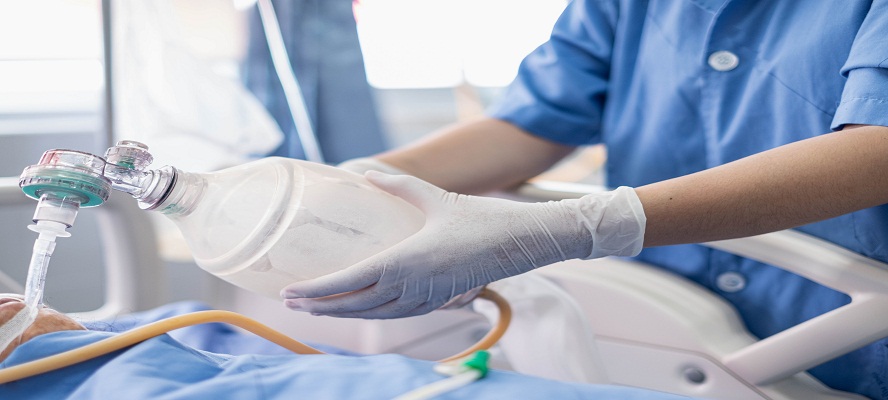AHPI strongly opposes Delhi Govt’s order to reserve 80% ICU beds for COVID patients
While SC vacated stay till November 26, AHPI calls for dialogue between govt and private hospitals and consideration for non-COVID patients
In anticipation of increasing number of COVID-19 cases, the Government of Delhi had issued an order on September 12, 2020, asking 33-premier hospitals to reserve 80 per cent of their ICU beds for COVID patients. Health experts at the Association of Healthcare Providers (India) (AHPI) opined that this order was not only arbitrary but created serious problems in these hospitals as non-COVID patients, who had been waiting for long for their elective procedures had started coming for treatment and at the time of this order, more than 50 per cent of ICU beds in general were occupied with non-COVID patients.
The other problem faced by these hospitals was segregation of 80 per cent beds from the rest 20 per cent. Commenting on the dilemma faced by these hospitals, Dr Girdhar Gyani, Director General, Association of Healthcare Providers (India) (AHPI) gives an example, asking if an ICU with 40-beds, has to keep 32 beds for COVID, then how do we isolate the balance eight beds for non-COVID patients? He points out that this would mean that virtually all 40-beds would be used for COVID patients.
The other important issue was that some of these 33-hospitals are undertaking quaternary care procedures like by-pass heart surgeries, Liver/ Kidney transplants, Oncology, Neuro/ Stroke surgeries etc. Patients needing these procedures depend only on these hospitals and the order passed by the Delhi Government virtually shut the doors for these hapless patients. It appears as if as per Delhi Government there are no non-COVID patients in Delhi, comments Dr Gyani.
Giving the sequence of events, this order was challenged by AHPI in the Delhi High Court and was stayed on September 22. The Delhi Govt approached a Double Bench of Delhi-HC but it was stayed there too. The Delhi government then approached the Hon’ble SC and there too, it was referred to the Double Bench of Delhi HC. By this time number of cases had increased and the HC, on November 12, vacated the stay till November 26, 2020.
With cases in Delhi already increasing by the day post the festival season and the onset of winter, the issue is already critical and needs quick resolution.
Adds Dr. Gyani, “After vacation of stay, Delhi government has gone into an overdrive and ordered all private hospitals to reserve 80 per cent of their ICU beds for COVID. Further, the government has ordered 90-private hospitals to reserve 60 per cent of their total beds as COVID beds. This is going to create a very serious situation for non-COVID patients, resulting in likely increase in morbidity and mortality of such patients. Unfortunately, fatalities due to non-COVID cases will not come on record.”
In beginning March 2020, it was decided that based upon China’s and Italy’s experience, 80 per cent of cases would be mild and manageable at home through simple home quarantine or quarantine centers. Next 15 per cent cases would be severe and could be taken care of at COVID CARE Centers or simple hospitals. Only 5 per cent cases would require hospitalisation of which 2 per cent may need ICUs.
Says Dr Gyani, “There has been a failure at macro level. The Delhi government did announce at that time to set up COVID care centers in hostels, open shamiana, railway wagons. Then came 10,000 beds at Radha Swami Satsang Sabha. Unfortunately, we depended too much on home isolation and did not set up/ utilise the COVID CARE centers for mild cases. Government failed to educate population on, when to go for COVID test and when to report to COVID CARE centers or hospitals. This compounded the cases and suddenly patients started approaching hospitals a little too late. This situation was further aggravated due to huge relaxations during festive time and adverse weather conditions.”
What seems to be the tipping point is the fact that while the pandemic is basic responsibility of public health system, with private sector acting as second line of defense, the recent orders make the private sector as first line of defense. Dr. Gyani further adds, “While the private sector has been responding in full strength not only in Delhi but across the country, the sad part is that the government does not even engage or consult the private/ corporate sector through dialogue. While the government has all the powers under the Pandemic Act, acting without any consultation is unbecoming of democratic processes and may be a pointer to a sense of arrogance. This does not give desired outcomes, more so when dealing with sensitive issue like COVID, which requires empathy and compassion. The gaps in the public health system have been exposed. Private sector is all set to provide greater support but would like a dialogue with sound logic like ensuring minimum number of ICU beds for non-COVID critical patients and with due diligence of segregating COVID and non-COVID beds.”
Elaborating on what could prove to be a viable a solution to the issue, Dr. Gyani says, “It is time that government introspects and enters into a dialogue with the private sector and finds amicable solutions to earmark dedicated COVID hospitals/ wards and at the same time keeps beds for life threatening ailments like heart attack, stroke, kidney/ liver transplant, cancer etc. It is also time that we activate COVID CARE centers for mild cases including utilising the 10,000 beds at the Radha Swami Center and similar other centers to avoid patients rushing to hospitals. Finally, a comprehensive campaign is needed to educate population on acting on time with respect to specified conditions as publicised by ICMR.”
- Advertisement -


